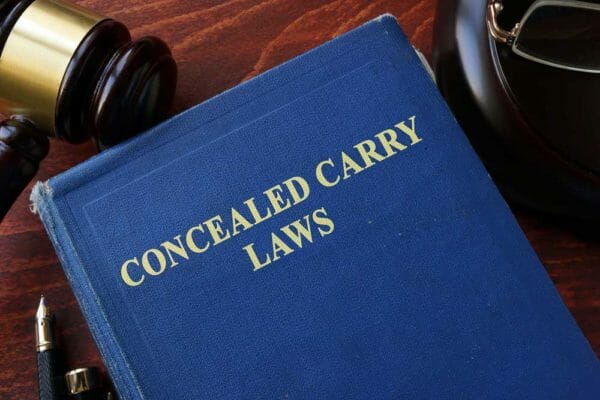
U.S.A. –-(AmmoLand.com)- In a recent article about the intricacies of passing a Constitutional Carry bill in Nebraska, it was noted people with a recognized permit to carry concealed in Nebraska was not required to register their handguns in Omaha, Nebraska. Omaha, specifically the Omaha Police Officer’s Association, was lobbying hard to keep the Omaha requirement of registration of handguns.
Under current Omaha regulations, people who do not have concealed carry permits which are valid in Nebraska, are required to register handguns in Omaha.
Commentator Jon Anderson of the Nebraska Firearms Owners Association noted:
Omaha ALREADY requires registration of all handguns possessed inside city limits UNLESS the possessor has a Concealed Handgun Permit (CHP holders are exempt from registration. This has been the norm for YEARS.
Commentator Russn8r replied:
No, they’re not. A concealed carry permit *is* registration! Extensive registration.
Both are correct, in a sense. CHP holders in Nebraska are not required to register any firearms, handguns, or long guns.
A concealed carry permit is a “registration” of a sort. It is registration showing the person who has the permit applied for and received a permit to carry a concealed handgun (in Nebraska or some other states) or weapon (in Arizona or some other states). Such “registration” has little significance because it does not tie the person registered to any particular handgun. It does not show the person registered owns a handgun. Numerous students in the concealed carry courses that I conducted in Arizona did not own guns.
This is a significant difference in the level of registration. Legally tying ownership of a particular firearm to a particular person is a stepping stone to confiscating guns from the population slowly, in increments. Registration of guns with particular owners, is, in effect, gun confiscation.
Registration of someone as having received a carry permit has little effect. It shows the person is likely to own a firearm. Many other things do so as well, such as reading AmmoLand. It is difficult to avoid having your viewing history on the internet recorded and tracked. If you purchase a firearm, ammunition, or a firearm accessory with a credit card, you are on a list of potential firearms owners. If you subscribe to any hunting or shooting magazine or belong to any shooting or Second Amendment group, you are on a list as valid as having a carry permit. If you have a hunting license, you are on a list.
In the United States, about 40% of residents are strong, potential firearms owners. In some states, such as Alabama, Alaska, and Arizona, the number of likely firearms owners is a significant majority of the residents of the state. What good does a list of potential firearms owners do, when a list of residents is mostly the same?
Most states who issue carry permits do not require information about a particular firearm in order to issue the permit. There are a couple of exceptions.
California appears to list specific firearms on the permits they issue for carry. If particular sheriffs in California do not do so, please inform us of the practice.
New Jersey requires information about the specific firearms that would be carried.
Some local jurisdictions that issue permits to carry, such as Sheriffs in a few states, might require information about specific handguns, but it seems unlikely.
A few states require registration of all guns or just handguns, such as California, Hawaii, Maryland, Massachusetts, Michigan, New Jersey, and New York. A person with a carry permit does not add much information to their database.
About Dean Weingarten:
Dean Weingarten has been a peace officer, a military officer, was on the University of Wisconsin Pistol Team for four years, and was first certified to teach firearms safety in 1973. He taught the Arizona concealed carry course for fifteen years until the goal of Constitutional Carry was attained. He has degrees in meteorology and mining engineering, and retired from the Department of Defense after a 30 year career in Army Research, Development, Testing, and Evaluation.

